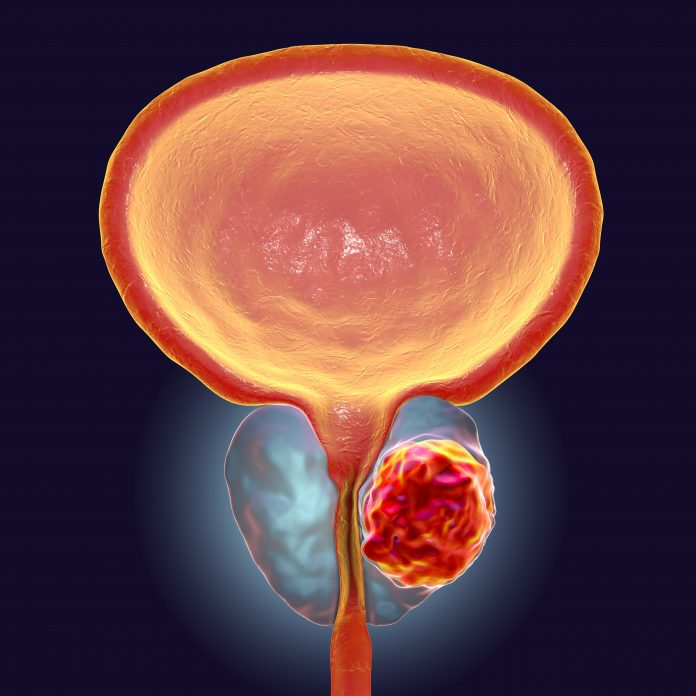
A healthy diet may reduce the chance of low risk prostate cancer progressing in men undergoing active surveillance, according to a team led by researchers at Johns Hopkins Medicine. This finding further supports the idea that men with lower risk prostate cancer can be carefully monitored in lieu of undergoing harsh treatments.
The findings are reported in JAMA Oncology, and led by Zhuo Tony Su, MD, a fifth year resident at the Brady Urological Institute and the Johns Hopkins University School of Medicine.
“Our findings-to-date should be helpful for the counseling of men who choose to pursue active surveillance and are motivated to modify their behaviors, including quality of diet,” says study co-senior author Christian Pavlovich, MD, director of the prostate cancer active surveillance program at the Brady Urological Institute.
“Many men diagnosed with low grade prostate cancer are interested in changes they can make to reduce the risk of their tumor becoming more aggressive, and the role of diet and nutrition is one of the most commonly asked questions,” says study co-senior author Bruce Trock, PhD, a professor of urology, epidemiology and oncology at the Johns Hopkins University School of Medicine, and director of the Brady Urological Institute’s epidemiology division.
During active surveillance, biopsies are performed at regular intervals in order to look for change in the prostate cancer that would move it to a higher grade group.
For this study, these researchers prospectively evaluated the histories of 886 men (median age at diagnosis: 66) diagnosed with grade group 1 prostate cancer from January 2005 to February 2017, all of whom were in the Johns Hopkins Medicine active surveillance program and whom, at the time of enrollment, completed a validated food frequency survey.
Based on their responses to the questionnaire, a Healthy Eating Index (HEI) score was calculated for each patient. The HEI ranges from 0–100.
“The HEI is a validated measure of overall diet quality, quantifying how well an individual’s dietary pattern adheres to the recommendations of the U.S. Department of Agriculture’s Dietary Guidelines for Americans,” says Su.
They also used two other scores.
“The DII and E-DII scores assess the inflammatory or anti-inflammatory potential of any diet, so higher scores indicate a diet that may cause more inflammation, which in turn, may contribute to the development and progression of prostate cancer,” says Su. “We evaluated whether higher inflammatory potential was associated with increased risk of grade reclassification.”
By a follow-up assessment at 6.5 years after diagnosis, 187 men (21%) had been reclassified as grade group 2 or greater, of whom 55 (6%) had extreme grade reclassification to grade group 3 or greater.
“When our team looked at the HEI and E-HEI scores in relation to the grade reclassification rates, we found a statistically significant inverse association between adherence to a high quality diet—as indicated by high HEI and E-HEI scores—and the risk of grade reclassification during active surveillance,” says Trock. “In other words, the higher the HEI and E-HEI scores, the more reduced the risk that a low grade prostate cancer had progressed to a higher grade disease that mandated curative treatment.”
Pavlovich says for patients adhering to a high quality diet, every increase of 12.5 points in the HEI score was associated with an approximately 15% reduction in reclassification to grade group 2 or greater, and a 30% reduction in reclassification to grade group 3 or greater.





